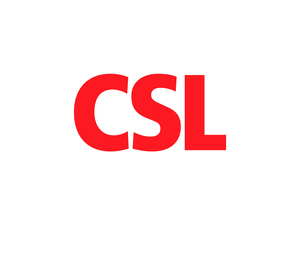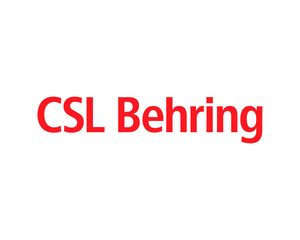KING OF PRUSSIA, Pa., Nov. 5, 2020 /PRNewswire/ -- Global biotherapeutics leader CSL Behring today announced that the study design manuscript for its landmark AEGIS-II (ApoA-I Event reducinG in Ischemic Syndromes II) has been published in the American Heart Journal. The Phase 3 trial, which enrolled its first patient in March of 2018, is evaluating the efficacy and safety of CSL112 (apolipoprotein A-I [human]) to reduce the risk of cardiovascular death, myocardial infarction (MI) also known as a heart attack, and stroke in acute myocardial infarction (AMI) patients.
"We know from prior research that infusions of CSL112 produce an immediate enhancement in cholesterol efflux capacity, a measurement of the body's natural process of removing cholesterol from cells," said C. Michael Gibson, M.D., M.S., Professor of Medicine at Harvard Medical School, an interventional cardiologist at Beth Israel Deaconess Medical Center and Chairman of the AEGIS-II study. "AEGIS-II will evaluate whether this rapid increase in cholesterol efflux will stabilize plaque and improve outcomes in heart attack survivors."
Cardiovascular (CV) disease is the leading cause of death globally, with an estimated 800,000 acute MIs occurring each year in the U.S. alone.1,2 Patients who survive a heart attack are at high risk of experiencing early recurrent CV events. Approximately 60 percent of first-year recurrent CV events (CV death, heart attack or stroke) occur within the first 90 days following the initial event3, with morbidity and mortality associated with both the initial and recurrent events as high as 20 percent in the first year.4,5
"We are proud to have a world-class team in place both at CSL Behring and through our distinguished academic leadership committees to investigate a first-in-class therapy," said Larry Deckelbaum, Vice President, Research and Development, Cardiovascular and Metabolic Therapeutic Area at CSL Behring. "AEGIS-II is the largest clinical trial ever undertaken by CSL Behring and a testimony to our promise to patients and commitment to innovative solutions that address significant unmet medical needs."
The AEGIS-II study is a Phase 3, multicenter, double-blind, randomized, placebo-controlled, parallel-group study, which will enroll approximately 17,400 patients from 49 countries. It will evaluate the efficacy and safety of CSL112 compared to placebo in reducing the risk of major adverse CV events (MACE) in patients following a heart attack. The primary efficacy outcome is time to the first occurrence of the MACE composite, which includes CV death, heart attack or stroke, from randomization through 90 days.
Patients eligible for enrollment include adults at least 18 years of age who experienced a type 1 (spontaneous) heart attack, along with multivessel coronary artery disease and the presence of established CV risk factors, including treatment for type 2 diabetes or at least two of the following: age ≥65 years, prior history of heart attack or peripheral arterial disease (PAD).
Participants enrolled will be stratified by the type of the initial heart attack (ST-segment elevation myocardial infarction [STEMI] or non-ST-segment elevation myocardial infarction [NSTEMI]), how the initial heart attack was managed (percutaneous coronary intervention [PCI] or medically managed), and geographic region of the world. Participants will then be randomized using a 1:1 ratio to receive four weekly infusions of either 6g CSL112 or placebo. The study will end at least 365 days after the last participant is randomized.
AEGIS-II is being conducted under the academic leadership of the PERFUSE Group at Beth Israel Deaconess Medical Center, the Duke Clinical Research Institute and the Stanford Cardiovascular Institute.
About the AEGIS Clinical Study Program
Prior to AEGIS-II, results from the Phase 2b AEGIS-I study were published in Circulation. A multicenter, randomized, double-blind, placebo-controlled, dose-ranging study, AEGIS-I met its primary safety endpoints, showing CSL112 did not cause significant changes in liver or kidney function and was well-tolerated when administered to patients who experienced a heart attack. The study also confirmed CSL112's mechanism of action, cholesterol efflux enhancement, as demonstrated by an immediate, up to four-fold increase compared to baseline in cholesterol efflux capacity.6
An additional Phase 2 trial, published in American Heart Journal, demonstrated renal safety of CSL112 in patients with moderate renal impairment who experienced a heart attack.
About CSL112
CSL112, Apolipoprotein A-I (Human), is a novel formulation of human plasma-derived apoA-I, the primary functional component of high-density lipoproteins (HDL). Studies have shown that an infusion of CSL112 rapidly enhances cholesterol efflux capacity. Cholesterol efflux is the first and most critical step in reverse cholesterol transport and is the body's primary mechanism for clearing cells of excess cholesterol that would otherwise continue to accumulate in plaque. This build-up of plaque over time can rupture and potentially cause a cardiovascular event. Compared to the standard of care, CSL112 is a therapy that may offer a unique approach to reduce the risk of cardiovascular death, myocardial infarction (MI), and stroke in acute coronary syndrome (ACS) patients diagnosed with either STEMI or NSTEMI.
About CSL Behring
CSL Behring is a global biotherapeutics leader driven by its promise to save lives. Focused on serving patients' needs by using the latest technologies, the company develops and delivers innovative therapies that are used to treat coagulation disorders, primary immune deficiencies, hereditary angioedema, respiratory disease, and neurological disorders. The company's products are also used in cardiac surgery, burn treatment and to prevent hemolytic disease of the newborn.
CSL Behring operates one of the world's largest plasma collection networks, CSL Plasma. The parent company, CSL Limited (ASX:CSL;USOTC:CSLLY), headquartered in Melbourne, Australia, employs more than 27,000 people worldwide, and delivers its life-saving therapies to people in more than 100 countries. For inspiring stories about the promise of biotechnology, visit Vita at CSLBehring.com/vita and follow us on Twitter.com/CSLBehring.
Disclosure: Dr. Gibson's spouse serves on a scientific advisory board for CSL Behring and receives compensation for those services.
Media Contact:
Natalie de Vane
Mobile: 610-999-8756
Office: 610-878-4468
[email protected]
References
- World Health Organization. Cardiovascular diseases (CVDs)- Fact Sheet. 2017.
- Benjamin E, et al. American Heart Association. Heart Disease and Stroke Statistics—2018 Update. Circulation. 2018;137:e1-e442.
- Wallentin L, Becker RC, Budaj A, et al. Ticagrelor versus clopidogrel in patients with acute coronary syndromes. N Engl J Med. 2009;361(11):1045-1057.
- Goldberg RJ, Currie K, White K, et al. Six-month outcomes in a multinational registry of patients hospitalized with an acute coronary syndrome (the Global Registry of Acute Coronary Events [GRACE]). Am J Cardiol. 2004;93(3):288-293.
- Morrow DA. Cardiovascular risk prediction in patients with stable and unstable coronary heart disease. Circulation. 2010;121(24):2681-2691.
- Gibson CM, et al. Safety and tolerability of CSL112, a reconstituted infusible, plasma-derived apolipoprotein A-I, after acute myocardial infarction. Circulation 2016;134:1918-1930.
SOURCE CSL Behring

Related Links
WANT YOUR COMPANY'S NEWS FEATURED ON PRNEWSWIRE.COM?
Newsrooms &
Influencers
Digital Media
Outlets
Journalists
Opted In






Share this article